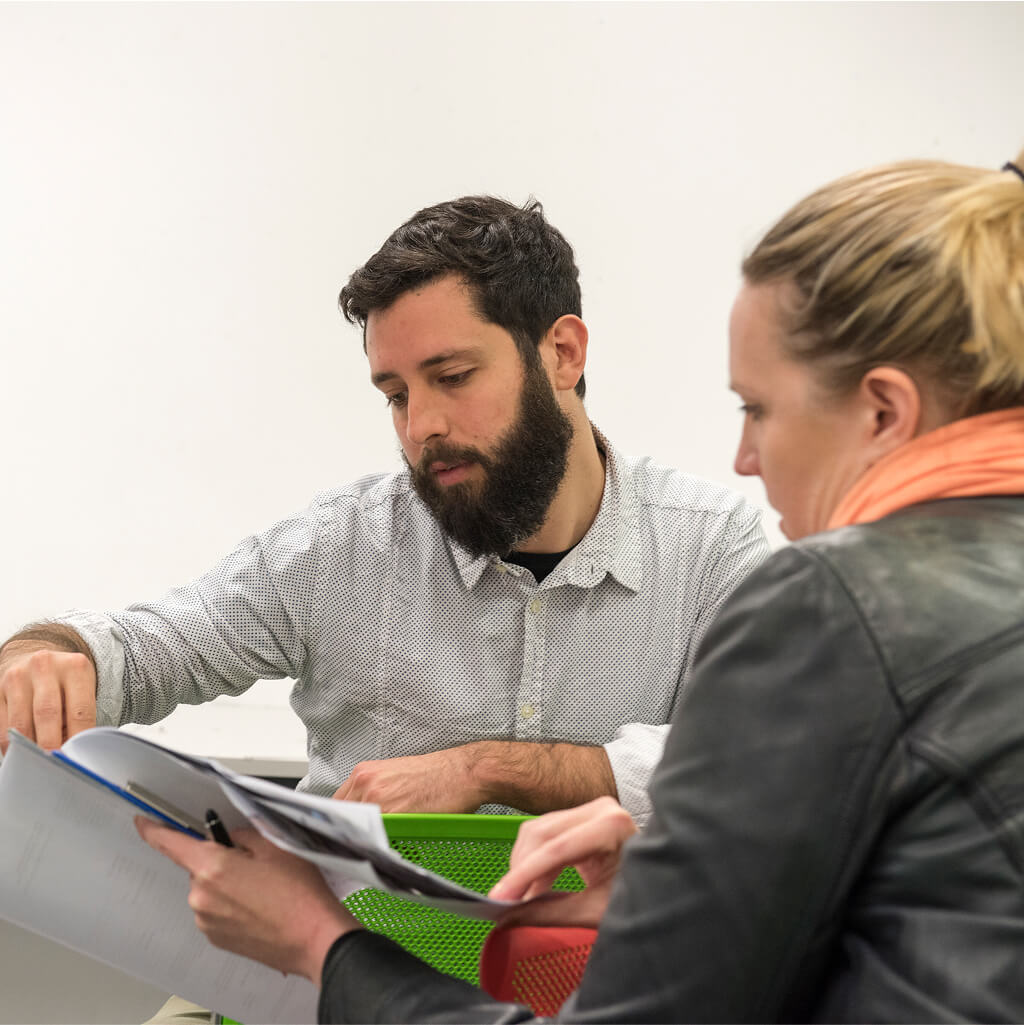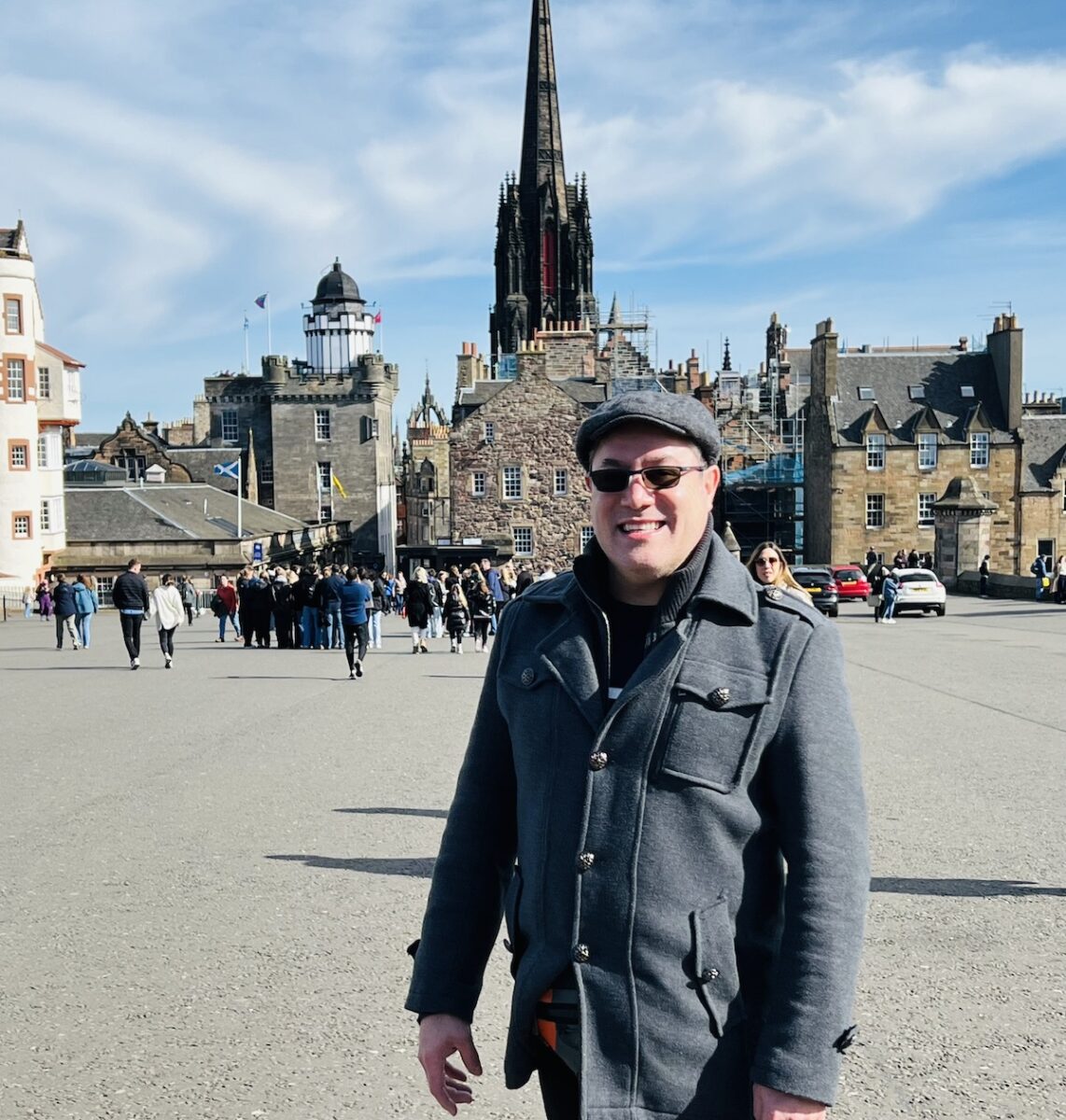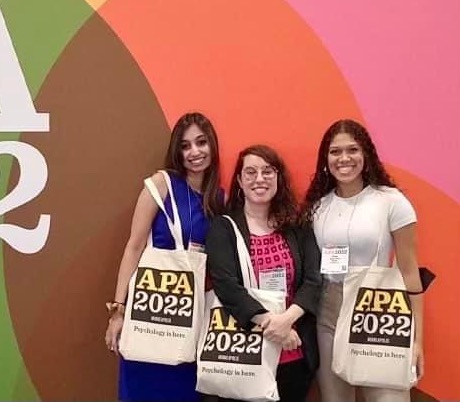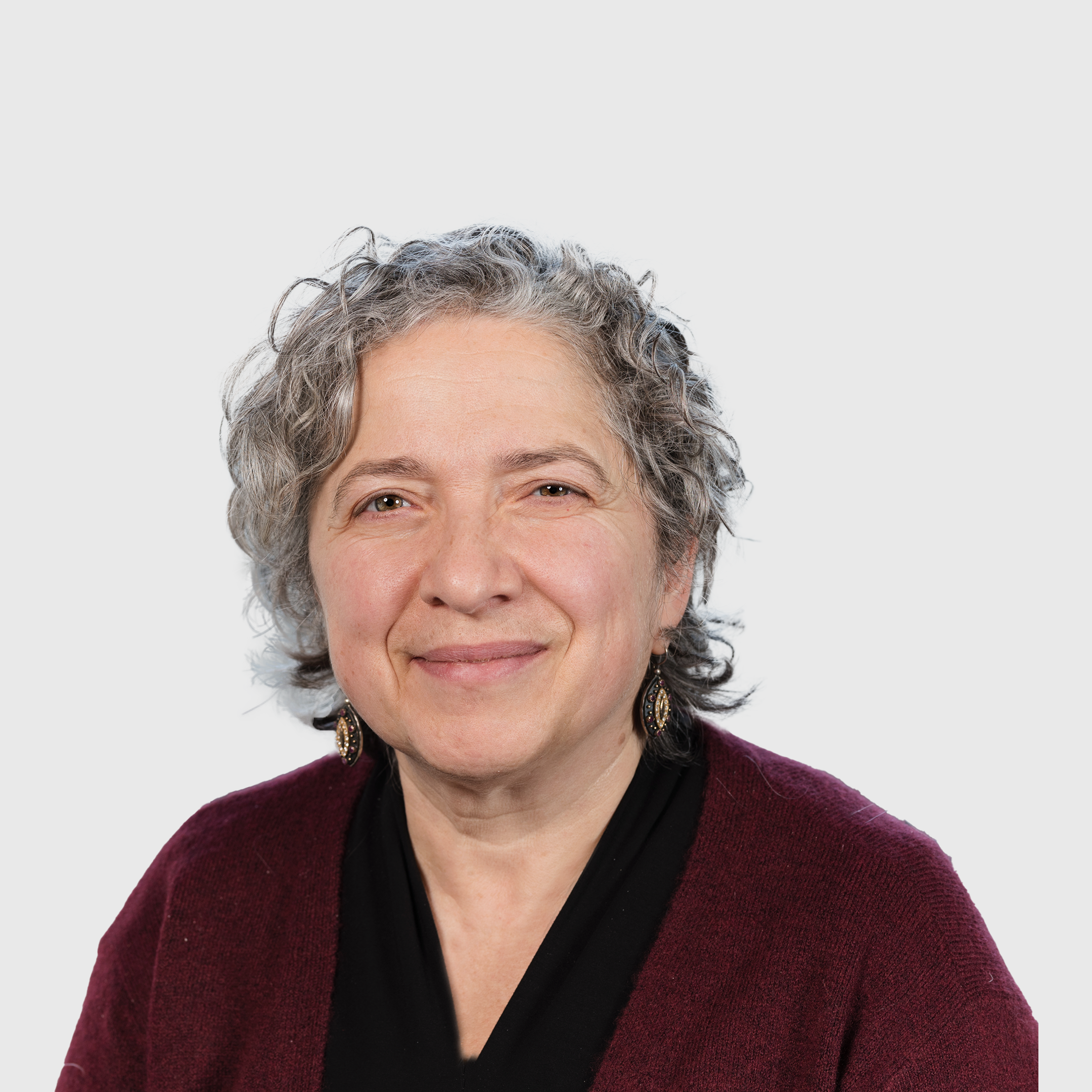
Doctor of Philosophy (Ph.D.) in Couple + Family Therapy
Chicago
The Adler University Doctor of Philosophy in Couple and Family Therapy positions scholars and therapists to shape the future of the field, advancing rigorous research, driving systemic insight, and making lasting contributions that strengthen couples, families, and communities.
- 59 credits
- 4-year program, full time
- Only COAMFTE-accredited Ph.D. in Illinois
- Stackable certificate options
Admission Deadlines
| Term | Priority | Final |
|---|---|---|
| Fall 2026 | 12/1/2025 | 2/15/2026 |
Program overview
Healthy couples and families are essential to the well-being of individuals and communities, creating a need for experts who can address relational challenges at the highest level. Adler University’s couple and family therapy doctorate prepares graduates to meet this need through advanced clinical training, original research, and teaching.
Students engage in rigorous coursework, faculty mentorship, and systemic scholarship that emphasize self-of-the-therapist development, ethical practice, and cultural competence. This comprehensive preparation positions graduates to expand the reach of couple and family therapy — whether through practice, research, policy, or education — while strengthening the systems that support relational health.
Why choose the Ph.D. in couple and family therapy program at Adler?
- National accreditation: The only Ph.D. in couple and family therapy in Illinois accredited by Commission on Accreditation for Marriage and Family Therapy Education (COAMFTE), ensuring comprehensive academic and clinical standards recognized across the profession.
- Faculty mentorship: Learn from licensed marriage and family therapists who are also American Association for Marriage and Family Therapy (AAMFT) Approved Supervisors, offering personalized guidance grounded in systemic practice.
- Professional advancement: Adler holds special approval from AAMFT to provide the Fundamentals of Supervision course, enabling students to qualify as AAMFT Approved Supervisor Candidates.
*Students with a nonclinical master’s are recommended to apply to the COAMFTE-accredited Master of Arts in Couple and Family Therapy.
Accreditation + handbook
Accreditation
The Doctor of Philosophy in Couple and Family Therapy Program at Adler University is the only couple and family therapy doctoral program in Illinois that is accredited by the Commission on Accreditation for Marriage and Family Therapy Education (COAMFTE).
Commission on Accreditation for Marriage and Family Therapy Education (COAMFTE)
277 S.Washington Street, Suite 210
Alexandria, Virginia 22314
703.838.9808
coa@aamft.org
The program is currently accredited for the period of 5/1/2023 through 5/1/2028.
View the Certificate of Accreditation for the Couple and Family Therapy program
Couple and Family Therapy Department Handbook
The Couple and Family Therapy Department Handbook (“CFT Handbook”) is available for applicants and current students. This contains the most up-to-date information regarding the department and our degree and certificate offerings.
Licensure
Adler University works to provide resources to our students and alumni in support of the licensure process. Please review this information thoroughly. If you require more detailed, step-by-step instructions, please submit an email to the Alumni Relations Office with the subject line: “ALMFT/LMFT Licensure Application Process guidelines” and request instructions.
Licensed Marriage and Family Therapist
Incoming students with a master’s degree in couple and family therapy, i.e. marriage and family therapy, or medical family therapy are typically eligible to apply for licensure as an LMFT in the state of Illinois. Applicants for this program with a master’s degree in another field, i.e. counseling, psychology, or social work, will have their graduate coursework evaluated and a program of study designed to meet the requisites of our Ph.D. programs and recommendations of coursework to help meet the licensure requirements for the LMFT in the state of Illinois. The program cannot guarantee this evaluation of coursework on behalf of the state. It is important for students be aware that LMFT requirements can vary significantly from state to state in their requirements of completed practicum hours and coursework for licensure. Clinical hours done in the context of practicum and internship requirements of the doctorate can typically be counted as hours towards licensure as long as the experience meets the requirements of both the degree and the state.
LMFT Licensure in Illinois
The curriculum and supervised training of the MCFT program are intended to help graduates meet the educational requirements for licensure as a Marriage and Family Therapist (LMFT) in the state of Illinois. Licensure requirements can vary significantly from state to state in their expectations of practicum hours and coursework. Students are strongly encouraged to review the licensing requirements in any state in which they would anticipate practicing. MCFT students complete a practicum as part of their degree requirement including 100 hours of supervision with an AAMFT Approved Supervisor or Supervisor Candidate. This 100 hours of supervision can also be used towards LMFT licensure requirements in the state of Illinois. Additionally, the Master’s Qualifying Exam for degree completion is intended to prepare students for the licensure exam.
Doctoral students in Couple and Family Therapy (DCFT) must be licensed or eligible for licensure as a LMFT in the state of Illinois. Applicants without this can be admitted as a doctoral student but must first complete the requisite coursework for eligibility – this will be determined on a case-by-case basis by the Department Chair. Students not meeting this requirement will take the requisite CFT courses in the first year of their doctoral program. Client contact (practicum and internship) and supervision, done post the eligible master’s degree, to fulfill the doctoral requirements can be counted as hours towards licensure should it meet all the state and program requirements.
Information regarding licensure as an LMFT in the state of Illinois can be found at the Illinois Department of Financial and Professional Regulations website for Marriage and Family Therapy.
Information regarding the licensing exam can be found at the Association of Marital and Family Therapy Regulatory Boards National Exam. *log in is required
Expand Your Credentials
Adler University provides students with options to customize their education through dual degrees, certificates, and program emphases.
Students enrolled in the Ph.D. for couple and family therapy can strengthen their professional preparation through optional certificates in Sex Therapy or Substance Abuse Counseling.
Adler University offers a Certificate in Sex Therapy to both current students and non-degree learners through a 10-credit hour program delivered in a blended format.
The certificate is approved by the American Association of Sexuality Educators, Counselors, and Therapists (AASECT) and fulfills the educational requirements toward AASECT Certified Sex Therapist designation. Completion of the program provides the academic foundation for certification; additional clinical hours and supervision are required to achieve credentialing.
Coursework integrates advanced knowledge in human sexuality, sex therapy approaches, and sexual attitude reassessment (SAR). Learning combines online modules with weekend intensives at Adler’s Chicago campus, ensuring both flexibility and meaningful applied preparation for professional practice.e
Adler University offers a Substance Abuse Counseling Certificate to students in select Chicago programs through an additional 12 credit hours.
The certificate is accredited as an Advanced Alcohol and Other Drug Abuse Counselor Training Program by the Illinois Alcohol and Other Drug Abuse Professional Certification Association, Inc. (IAODAPCA), following the Illinois Model for Certification of Alcohol and Other Drug Abuse Counselors.
Coursework covers the theories, techniques, and core functions of substance abuse counseling, with an emphasis on evidence-based research and best practice standards. A specialized practicum experience further enhances applied skills and professional preparation.
Shaping the Future of Couple and Family Therapy careers
Graduates gain specialized expertise and practical experience that open pathways to a wide range of careers in couple and family therapy.

Couple + Family Therapist
Deliver advanced systemic therapy to couples and families, supervise clinicians, lead training, and evaluate programs.

Systemic researcher
Investigate couple and family systems by designing qualitative and quantitative studies, evaluating programs, and sharing findings through publications and conferences to advance evidence-based practice.

Academic professor
Teach graduate courses, design curricula, supervise practicum and internship, mentor research, publish and present scholarship, and contribute to accreditation and departmental service.

clinical supervisor
Mentor therapists and trainees in systemic case conceptualization, treatment planning, and ethical decision-making. Clinical Supervisors observe sessions, review documentation, and provide formative and summative feedback that builds competence. They structure individual and group supervision, consult on crises and risk protocols, and ensure quality improvement.
Admission requirements
Prerequisites
Clinical master’s degree in marriage and family therapy, couple and family therapy, medical family therapy, or related clinical field such as social work, art therapy, psychology, or counseling that is license eligible.
Completion of clinical practicum in applicant’s graduate degree program.
Licensure or licensure eligibility as an LMFT in the state of Illinois. Applicants without this can be admitted as a doctoral student but must complete coursework to meet the foundational curricular areas as required by COAMFTE.
Eligibility
Applicants of this program must meet the following requirements:
- Clinical master’s degree in marriage and family therapy, couple and family therapy, medical family therapy, or related clinical field, such as social work, psychology, or professional counseling from a regionally accredited U.S. institution or a comparable degree from an international institution.
- Successful applicants typically have a grade point average of 3.25 or higher on a 4.0 scale for graduate-level coursework.
- Commitment to the profession of couple and family therapy as demonstrated in their application essay.
- Completion of clinical practicum* in their graduate degree program.
- Licensure or licensure eligibility as an MFT in the state of Illinois. Applicants without this can be admitted as a doctoral student but must first complete coursework to meet the foundational curricular areas as required by COAMFTE.
Application Requirements
Applicants are required to submit the following items to be considered for admission:
- Application fee.
- Completed application submitted via the online portal.
- Resume or Curriculum Vitae.
- Statement of Intent.
- Official transcripts from all undergraduate and graduate schools attended (U.S and Canada).
- Two letters of recommendation. These should be from someone who can specifically speak to your academic and professional abilities and include at least one from a graduate instructor and one from a clinical supervisor.
- Faculty interview.
How to Apply + Submit Transcripts
- Visit Adler University’s online application portal, create an account, and submit your application, fee, Statement of Intent, resume/CV, and references’ details.
- Have official transcripts sent directly from each issuing institution or approved service to the Office of Admissions prior to the application deadline. Do not upload official copies to the portal.
Official electronic transcripts should be sent to admissions@adler.edu.
Physical transcripts should be sent to:
Adler University – Office of Admissions
17 N. Dearborn Street
Chicago, IL 60602
Statement of Intent
Applicants are required to provide a statement of intent answering the following questions. They should be 2-3 pages, double-spaced.
- Why are you interested in your chosen field and program?
- Why is Adler University’s program a good fit for you?
- Respond to Adler University’s mission statement as it relates to being a leader in your industry.
- What are your career goals and interests?
Curriculum | Internships | practicums
Students who have a master’s degree from another university and/or in another discipline (e.g., counseling or social work) may have additional coursework (i.e., credit hours) to level-up for the PhD. This program is a full-time program to be completed in four years and no longer than seven years. CFTD courses are listed under the categories of Advanced Curricular Areas (ACA) and Advanced Practical Experiences as outlined by the COAMFTE Accreditation Standards Version 12.5.
Completion of the program includes the courses below, along with additional requirements outlined in the Adler University Course Catalog.
ADVANCED RESEARCH
ACA 1
Qualitative Research Methods
This course focuses on qualitative approaches to familial and relational research. It examines the theories and methods of qualitative research, such as grounded theory, narrative, case study, and hermeneutics and phenomenology. The course is designed to prepare students for the development of their dissertation proposal.
Statistics
This course covers the concepts and applications of descriptive and inferential statistics. It focuses on the statistical methods of data analysis, the analysis of variance, multivariate analysis, and multiple regression models. The course is designed to prepare students for the statistical analysis in their doctoral dissertation.
Quantitative Research Methods
This course will provide an overview of basic research design and measurement. The focus of the course will be research design and methodology specific to couple and family therapy. Students are expected to conduct an extensive, guided review of couple and family therapy research literature.
CFT Qualitative Data Analysis
This course provides an in-depth study of various qualitative research approaches and related data-collection methods. As a result of the course, students are expected to be familiar with ways of analyzing different types of qualitative data corresponding to the purpose and the design of the research model.
ADVANCED RELATIONAL COURSES
Systemic clinical theory (ACA 2)
Advanced Couple and Family Therapy Theory I + II
This advanced course explores the evolution of classic/modern approaches to couple and family therapy (CFT) theory, emphasizing a critical approach to both their theoretical and clinical application aspects. Students will be required to critically examine the specific theories’ stands on power and privilege dynamics as well as multicultural topics.
Advanced Therapy with Couples
This is an advanced course that focuses on concepts and applications of specific couple therapy issues including, but not limited to, social media and the digital world, domestic violence and intimate partner violence, and childhood sexual abuse and adult intimate relationships.
Advanced Family Therapy with Children and Adolescents
This is an advanced course that focuses on therapy with children and adolescents in the context of the family system. Issues covered include, but are not limited to, parental divorce, disordered eating, and growing up in a high-tech world.
Grief and Loss Through the Family Life Cycle
This advanced course is designed to familiarize students with both the theoretical and clinical literature on loss, death, and bereavement. Using a family systems and a multicultural perspective, this course will explore death and dying while building on the conceptual framework of the family life cycle. Self-of-the-therapist exploration and reflection is a key component to this course.
Trauma and the Family System
This course will address issues of symptomatology, assessment, and treatment of stress-related disorders with a special emphasis on the impact of PTSD or PTSD symptoms on the couple and family systems.
Systemic applications to contemporary challenges (ACA 3)
Diversity and Social Justice: Issues of Equity and Acceptance
Systemic teaching, supervision, consultation, and/or leadership (ACA 4)
Supervision of Couple and Family Therapists (2 cr.)
This course provides an in-depth overview of the foremost models of clinical supervision, including the unique aspects of supervising clinicians from each of the major theories of couple and family therapy. The student will learn how to structure supervision using a variety of modalities to provide effective case recommendations, facilitate therapist development, and solve problems in the therapist- client relationship.
ADVANCED PRACTICAL EXPERIENCE
Practicum: Clinical Practicum and Seminar I
CFT doctoral students will complete three consecutive semesters of supervised clinical practicum providing individual and relational therapy for the development of advanced systemic clinical skills while concurrently taking coursework. Students will receive supervision from their site supervisor as well as participate in practicum seminar provided by an AAMFT Approved Supervisor or Supervisor Candidate including individual and group supervision.
Practicum: Clinical Practicum and Seminar II
CFT doctoral students will complete three consecutive semesters of supervised clinical practicum providing individual and relational therapy for the development of advanced systemic clinical skills while concurrently taking coursework.
Practicum: Clinical Practicum and Seminar III and DQE
CFT doctoral students will complete three consecutive semesters of supervised clinical practicum providing individual and relational therapy for the development of advanced systemic clinical skills while concurrently taking coursework.
Doctoral Internship I
Following the completion of academic and practicum requirements, doctoral students must complete an internship following the guidelines included in the CFT Handbook. Students are expected to develop their own internship with guidance by the Clinical Training Director.
Doctoral Internship II
Following the completion of academic and practicum requirements, doctoral students must complete an internship following the guidelines included in the CFT Handbook. Students are expected to develop their own internship with guidance by the Clinical Training Director.
Dissertation Prep Seminar
This seminar is designed to assist students in the early stages of developing and beginning their dissertation.
Dissertation Literature Review
This course will focus on supporting students in making progress on their dissertation literature review. Students will develop an organized search strategy, find resources, and create a concrete outline of their dissertation literature review.
Dissertation I and Proposal Defense
Preparation and completion of the dissertation proposal, including the first three chapters: introduction, literature review, and methodology. Once this proposal document has been deemed ready by the Dissertation Chair for review, the student will submit the document to the entire committee for formal review.
Dissertation II
Students will submit their study for review by Adler University’s Institutional Review Board (if necessary). Completion of this phase is the goal of CFTD-877. Once IRB approval has been granted, the student will complete the necessary actions to conduct research and write the document.
Dissertation III and Oral Defense
Once CFTD students have received IRB approval and/or successfully completed the goals of CFTD 877, they may enroll in the CFTD-878. Completion of the project is the goal, including preparation for oral defense.
ELECTIVES
Students must take nine credits of electives – 9 area credits/63 program credits. See catalog for complete list of options.
Special Topic I, II, and III
This one-credit elective course with focus on a special topic in the field of Couple and Family Therapy providing knowledge and skills for developing CFTs. The Special Topics elective courses are designed to examine special interests, including current and emerging issues for couples and families, areas of social justice, and professional matters for CFTs.
Couples and Families in Crisis: Forensic Work from Systemic Perspective
This one credit elective course offers insight into working with couples and families in unique crisis situations and special populations. Topics include: working with victims of intimate partner violence and when children are witnesses; persons who use violence against their partners; children with trauma reactions related to having witnessed violence; childhood sexual abuse and incest survivors; undocumented immigrants; survivors of natural disasters; first responders; and foster families.
Divorce Mediation and Conflict Resolution with Couples
This course is about understanding conflict, resolution, and divorce mediation from a relational lens and through a systemic perspective. The framework will be expanded to include the global context of conflict resolution, conceptualizing and applying a social justice orientation.
Sex Therapy: Theory and Techniques
This course addresses the current models, techniques, and research in the treatment of intimacy and sexual issues for couples. The course will focus on the clinical skills of assessment including taking a sexual history, creating a sexual genogram, and knowledge of DSM-5 diagnoses and intervention explicitly designed for specific sexual disorders.
Integration of Religion and Spirituality in CFT
This course examines the integration of religion and spirituality into couple and family therapy. Students will critically examine the literature on spirituality and religion, explore diverse spiritual and/or religious paths, and discuss the potential benefit/harm of spiritual and/or religious beliefs. Students will develop skills to integrate spirituality into treatment.
Medical Family Therapy
This course will address biopsychosocial and spiritual aspects of illness and disability and their impact on the couple and family systems. Self-of-the-therapist work and the impact of dimensions of culture, power, and privilege will be emphasized throughout the course. Also, issues of collaboration between marriage and family therapists and other healthcare professionals will be discussed.
Gerontology Issues in Family Therapy
This course examines the impact of aging on family dynamics and relationships including the processes of development in later life, intergenerational issues, and the crises or transitions experienced throughout the family life cycle. The effect of a population that is living significantly longer on these family issues is explored. The course also addresses communication, mediation, and caregiving with aging family members.
Creative Intervention with Couples and Families
This one-credit doctoral special course covers techniques such as the kinetic family drawing, self-as-animal, the family floor plan, sand tray, build-a-house, video play therapy, family puppet interview, family school, and music therapy. This is a hands-on experiential class.
Hooks and Hardy
This course is designed to explore the scholarly works of bell hooks and Ken Hardy. Multiple writings of bell hooks and Ken Hardy provide frameworks to increase critical thinking in examining complex layers of cultural forces that impact lived experience and propose paradigms for impacting systemic change.
Adult Attachment Theory
This course will provide students with an overview of conceptual and empirical issues in adult attachment theory and its theoretical application in working with couples. Through the use of vignettes, role-plays, and educational videos, students will be helped to conceptualize dyadic stress with an attachment focus to work with couples to recreate healthier bonds.
Divorce
The purpose of this seminar is to examine specific issues for families who are experiencing divorce. Topics include the culture of divorce, the impact of divorce, the aftermath of divorce for men, women, and children, and remarriage and blended families.
Infidelity
Infidelity is a common presenting problem in couple, family, and individual therapy with presentation ranging from the aftermath for couples and families to individuals deciding between their partner and their affair. This seminar will define infidelity understanding the critical issues and look at the treatment of infidelity in couples, families, and individuals as well as reflect on the impact of treating infidelity on clinicians.
Pop-Culture and Couple and Family Therapy
Popular culture is often absorbed without thinking critically about its content or consequences. This is remarkable given the enormous impact it has on our lives, our identities and our consciousness. We often do not stop to think or question the underlying assumptions of popular culture, nor do we think about for what or whom such assumptions or content may support.
Consensus Rorschach
The Consensus Rorschach (CR) is a projective technique for the assessment of couples that has been used to elicit and analyze communication styles, power and control dynamics, emotional processes, and interpersonal stress dynamics. This seminar will provide the history of the technique, training in the administration and interpretation of the protocol, and cutting edge research on the use of the Consensus Rorschach with couples.
Building a Psychoeducation Program
Psychoeducation is an evidence-based practice (EBP) that can give information and support to families with a member with a diagnosis of mental and/or physical illness, and they also provide opportunities to build your clinical practice and reach clients who may be reluctant to attend therapy. This seminar will walk you through the steps of developing a psychoeducational program on the topic of your choice – developing the content, choosing the delivery mode, and integrating methods for evaluation.
Working with Families with a Child with Special Needs
This seminar will focus on meeting the needs and working with families with a child with special needs. Learning objectives include a focus on the impact of a child with special needs on the family including parenting issues, the couple relationship, and on siblings.
How to Publish a Book in the Field of Mental Health
One important aspect of a career in the field of mental health is writing and publishing. Whether it be a research paper, essay, book, or blog, putting our insights into written word can be a crucial component of being a clinician.
Becoming a Kink-Aware Professional: An Exploration of Kink and BDSM
This course will explore Kink and BDSM practices in sexuality within a systemic framework. Students will be expected to engage in intrapersonal work exploring their own attitudes and biases about Kink and BDSM practices and analyze how countertransference may impact their clinical work.
Perinatal Mental Health
Perinatal mood disorders and the special issues that present during the perinatal period are prevalent. This course will examine the unique challenges and special considerations when working with couples and families during this period in the family life cycle.
Introduction to Consensual Nonmonogamy
This course will explore various forms of consensual nonmonogamy within a systemic framework. Through didactic learning, the student is expected to gain knowledge regarding the various relational configurations of consensual nonmonogamy and an understanding of the specific vocabulary utilized by those within the community.
Men’s Mental Health
While there is a shared need to connect to self and others, the differences between men and women and how they connect are distinct in some ways. Clinical understanding related to the needs of each gender should not be based solely on assumptions and personal experiences but should also include an integration of human development knowledge and empirical research.
Exploring Stereotypes of Women
This course is designed to help students critically examine and explore stereotypes specific to women of color. This course will focus on the intersectionality of race, gender, class, and geographical variables that create racialized gender stereotypes for women of color.
Clinical Risk Management: Suicide in Couples and Families
This seminar will focus on suicide as an issue of clinical risk management in therapeutic work with families. A self-of-the-therapist lens will be used to help develop the student’s ability to respond to clients in crisis specifically focusing on interpersonal behaviors, reactions, risk factors and intervention strategies. Suicidal ideation as well as working with families after loss to suicide will be reviewed.
A Biopsychosocial Approach to Sexuality Across the Lifespan
This course will explore developmental sexuality across the lifespan including sexual and reproductive anatomy and physiology, human sexual response cycles, and the normative developmental tasks and challenges related to sex and sexuality from a biopsychosocial perspective. Competency understanding, assessing, and conceptualizing sexuality in a sex-positive way at various life stages including clinical interventions and improved communication skills addressing common challenges will be introduced.
Sexual Attitude Reassessment (SAR)
This course is an intensive in-person and experiential workshop designed to allow participants to examine and process their sexual attitudes, values, and beliefs through exposure to various sexual themes. Highly experiential in nature, the SAR involves exposure to films, documentaries, lectures, guest speakers and workshop activities with a focus on processing in both large and small groups.
Sex Therapy in Action: Assessment, Diagnosis, and Treatment of Psychosexual Issues and Dysfunction
This course will cover the practice of sex therapy through the assessment, diagnosis, and treatment of psychosexual disorders in the DSM-V including sexual issues arising from trauma, medical or mental health factors, relational factors, or environmental factors. Students can expect to learn several models and theories from both an individual and relational perspective to effectively diagnose and treat sexual functioning issues, as well as out-of-control sexual behaviors and paraphilic disorders.
SOCIAL JUSTICE PRACTICUM
Students who received their master’s at Adler do not need to take the SJP again.
Your opportunity to create lasting change on local and global systems, almost from day 1.
The Social Justice Practicum (SJP) at Adler University is a first-year, non-clinical, community-based experience that reflects Alfred Adler’s concept of social interest. The practicum places students with mission-driven organizations where they complete a minimum of 200 approved hours across two semesters, typically 8–10 hours per week. Alongside their placements, students participate in required workshops. Each practicum is evaluated through midterm and final supervisor reviews, student self-assessments, and feedback on the site and project, with grades of High Pass, Pass, Remediation, or Fail. The experience culminates in a campus-wide presentation of outcomes, assessed by multiple evaluators, offering students both applied training and the opportunity to contribute to meaningful community change.
REQUISITE CREDITS
Students accepted to the CFTD program may use a maximum of 39 credits from their master’s degree in marriage and family therapy, couple and family therapy, or medical family therapy or other graduate degree programs in the doctorate. Requests must include a transcript and syllabus and will be evaluated on an individual basis. These 39 credits must include the requisite coursework to apply for the (Associate) Marriage and Family Therapy license in the state of Illinois. Students not meeting this requirement will take the requisite CFT courses in the first year of their program which may extend their program.
Students who did not complete their master’s degree at Adler must also take:
Fundamentals of Adlerian Theory and Interventions and Family Guidance
This course provides the couple and family therapy student with an overview of the core concepts of Adler’s Individual Psychology as complementing systemic work with couples, families, and individuals. Building on this foundation, the course provides an opportunity to develop child family guidance and parenting skills education skills based on Adlerian principles and traditions.

“My time at Adler reinforced why my immigration experience and multi-cultural background led me to family therapy.”
– Nisan Ilkmen, Ph.D. ’23, M.A. ’17
Couple and Family Therapy
in the news
What is parentification? The toxic parent-child relationship, explained
Grief Doesn’t Just Change You — It Changes Us
Talk With Your Spouse About Money: 6 Tips And 9 Conversation Starters
Faculty
Meet the faculty leading Adler’s Ph.D. in couple and family therapy program in Chicago.
Marina Bluvshtein, Ph.D.
Director
Center for Adlerian Practice + Scholarship | Interim Chair, Couple + Family Therapy Department

Financing your degree
Use our tuition calculator to help you start to plan your budget. Financial aid from the government, scholarships, or part-time employment can help you more easily afford your degree.
Please make a selection using the filters above.
Art Therapy | Ph.D.
Year
1Credits
35Tuition
$35,035Fees
$3,222Total
$38,257Term
FallCredits
12Tuition
$12,012Fees
$1,074Total
$13,086Term
SpringCredits
12Tuition
$12,012Fees
$1,074Total
$13,086Term
SummerCredits
11Tuition
$11,011Fees
$1,074Total
$12,085Art Therapy | Ph.D.
Year
2Credits
18Tuition
$18,018Fees
$3,222Total
$21,240Term
FallCredits
9Tuition
$9,009Fees
$1,074Total
$10,083Term
SpringCredits
7Tuition
$7,007Fees
$1,074Total
$8,081Term
SummerCredits
2Tuition
$2,002Fees
$1,074Total
$3,076Art Therapy | Ph.D.
Year
3Credits
9Tuition
$9,009Fees
$3,222Total
$12,231Term
FallCredits
3Tuition
$3,003Fees
$1,074Total
$4,077Term
SpringCredits
3Tuition
$3,003Fees
$1,074Total
$4,077Term
SummerCredits
3Tuition
$3,003Fees
$1,074Total
$4,077Art Therapy | Ph.D.
Year
1Credits
35Tuition
$35,035Fees
$7,428Total
$42,463Term
FallCredits
12Tuition
$12,012Fees
$2,476Total
$14,488Term
SpringCredits
12Tuition
$12,012Fees
$2,476Total
$14,488Term
SummerCredits
11Tuition
$11,011Fees
$2,476Total
$13,487Art Therapy | Ph.D.
Year
2Credits
18Tuition
$18,018Fees
$7,428Total
$25,446Term
FallCredits
9Tuition
$9,009Fees
$2,476Total
$11,485Term
SpringCredits
7Tuition
$7,007Fees
$2,476Total
$9,483Term
SummerCredits
2Tuition
$2,002Fees
$2,476Total
$4,478Art Therapy | Ph.D.
Year
3Credits
9Tuition
$9,009Fees
$7,428Total
$16,437Term
FallCredits
3Tuition
$3,003Fees
$2,476Total
$5,479Term
SpringCredits
3Tuition
$3,003Fees
$2,476Total
$5,479Term
SummerCredits
3Tuition
$3,003Fees
$2,476Total
$5,4794 Year Course Sequence (on ground)
Clinical Mental Health Counseling | M.A.
Year
1Credits
18Tuition
$29,106Fees
$1,806Total
$30,912Term
FallCredits
6Tuition
$9,702Fees
$602Total
$10,304Term
SpringCredits
6Tuition
$9,702Fees
$602Total
$10,304Term
SummerCredits
6Tuition
$9,702Fees
$602Total
$10,304Clinical Mental Health Counseling | M.A.
Year
2Credits
20Tuition
$32,340Fees
$1,806Total
$34,146Term
FallCredits
7Tuition
$11,319Fees
$602Total
$11,921Term
SpringCredits
7Tuition
$11,319Fees
$602Total
$11,921Term
SummerCredits
6Tuition
$9,702Fees
$602Total
$10,304Clinical Mental Health Counseling | M.A.
Year
3Credits
18Tuition
$29,106Fees
$1,806Total
$30,912Term
FallCredits
6Tuition
$9,702Fees
$602Total
$10,304Term
SpringCredits
6Tuition
$9,702Fees
$602Total
$10,304Term
SummerCredits
6Tuition
$9,702Fees
$602Total
$10,304Clinical Mental Health Counseling | M.A.
Year
4Credits
6Tuition
$9,702Fees
$1,806Total
$11,508Term
FallCredits
2Tuition
$3,234Fees
$602Total
$3,836Term
SpringCredits
2Tuition
$3,234Fees
$602Total
$3,836Term
SummerCredits
2Tuition
$3,234Fees
$602Total
$3,8364 Year Course Sequence (on ground)
Clinical Mental Health Counseling | M.A.
Year
1Credits
18Tuition
$29,106Fees
$6,012Total
$35,118Term
FallCredits
6Tuition
$9,702Fees
$2,004Total
$11,706Term
SpringCredits
6Tuition
$9,702Fees
$2,004Total
$11,706Term
SummerCredits
6Tuition
$9,702Fees
$2,004Total
$11,706Clinical Mental Health Counseling | M.A.
Year
2Credits
20Tuition
$32,340Fees
$6,012Total
$38,352Term
FallCredits
7Tuition
$11,319Fees
$2,004Total
$13,323Term
SpringCredits
7Tuition
$11,319Fees
$2,004Total
$13,323Term
SummerCredits
6Tuition
$9,702Fees
$2,004Total
$11,706Clinical Mental Health Counseling | M.A.
Year
3Credits
18Tuition
$29,106Fees
$6,012Total
$35,118Term
FallCredits
6Tuition
$9,702Fees
$2,004Total
$11,706Term
SpringCredits
6Tuition
$9,702Fees
$2,004Total
$11,706Term
SummerCredits
6Tuition
$9,702Fees
$2,004Total
$11,706Clinical Mental Health Counseling | M.A.
Year
4Credits
6Tuition
$9,702Fees
$6,012Total
$15,714Term
FallCredits
2Tuition
$3,234Fees
$2,004Total
$5,238Term
SpringCredits
2Tuition
$3,234Fees
$2,004Total
$5,238Term
SummerCredits
2Tuition
$3,234Fees
$2,004Total
$5,2383 Year Course Sequence (on ground)
Clinical Mental Health Counseling | M.A.
Year
1Credits
24Tuition
$38,808Fees
$1,806Total
$40,614Term
FallCredits
9Tuition
$14,553Fees
$602Total
$15,155Term
SpringCredits
9Tuition
$14,553Fees
$602Total
$15,155Term
SummerCredits
6Tuition
$9,702Fees
$602Total
$10,304Clinical Mental Health Counseling | M.A.
Year
2Credits
23Tuition
$37,191Fees
$1,806Total
$38,997Term
FallCredits
7Tuition
$11,319Fees
$602Total
$11,921Term
SpringCredits
7Tuition
$11,319Fees
$602Total
$11,921Term
SummerCredits
9Tuition
$14,553Fees
$602Total
$15,155Clinical Mental Health Counseling | M.A.
Year
3Credits
18Tuition
$29,106Fees
$1,806Total
$30,912Term
FallCredits
6Tuition
$9,702Fees
$602Total
$10,304Term
SpringCredits
6Tuition
$9,702Fees
$602Total
$10,304Term
SummerCredits
6Tuition
$9,702Fees
$602Total
$10,3043 Year Course Sequence (on ground)
Clinical Mental Health Counseling | M.A.
Year
1Credits
24Tuition
$38,808Fees
$6,012Total
$44,820Term
FallCredits
9Tuition
$14,553Fees
$2,004Total
$16,557Term
SpringCredits
9Tuition
$14,553Fees
$2,004Total
$16,557Term
SummerCredits
6Tuition
$9,702Fees
$2,004Total
$11,706Clinical Mental Health Counseling | M.A.
Year
2Credits
23Tuition
$37,191Fees
$6,012Total
$43,203Term
FallCredits
7Tuition
$11,319Fees
$2,004Total
$13,323Term
SpringCredits
7Tuition
$11,319Fees
$2,004Total
$13,323Term
SummerCredits
9Tuition
$14,553Fees
$2,004Total
$16,557Clinical Mental Health Counseling | M.A.
Year
3Credits
18Tuition
$29,106Fees
$6,012Total
$35,118Term
FallCredits
6Tuition
$9,702Fees
$2,004Total
$11,706Term
SpringCredits
6Tuition
$9,702Fees
$2,004Total
$11,706Term
SummerCredits
6Tuition
$9,702Fees
$2,004Total
$11,7062 Year Course Sequence (on ground)
Clinical Mental Health Counseling | M.A.
Year
1Credits
35Tuition
$56,595Fees
$1,806Total
$58,401Term
FallCredits
13Tuition
$21,021Fees
$602Total
$21,623Term
SpringCredits
13Tuition
$21,021Fees
$602Total
$21,623Term
SummerCredits
9Tuition
$14,553Fees
$602Total
$15,155Clinical Mental Health Counseling | M.A.
Year
2Credits
27Tuition
$43,659Fees
$1,806Total
$45,465Term
FallCredits
12Tuition
$19,404Fees
$602Total
$20,006Term
SpringCredits
9Tuition
$14,553Fees
$602Total
$15,155Term
SummerCredits
6Tuition
$9,702Fees
$602Total
$10,3042 Year Course Sequence (on ground)
Clinical Mental Health Counseling | M.A.
Year
1Credits
35Tuition
$56,595Fees
$6,012Total
$62,607Term
FallCredits
13Tuition
$21,021Fees
$2,004Total
$23,025Term
SpringCredits
13Tuition
$21,021Fees
$2,004Total
$23,025Term
SummerCredits
9Tuition
$14,553Fees
$2,004Total
$16,557Clinical Mental Health Counseling | M.A.
Year
2Credits
27Tuition
$43,659Fees
$6,012Total
$49,671Term
FallCredits
12Tuition
$19,404Fees
$2,004Total
$21,408Term
SpringCredits
9Tuition
$14,553Fees
$2,004Total
$16,557Term
SummerCredits
6Tuition
$9,702Fees
$2,004Total
$11,7063 Year Course Sequence (online)
Clinical Mental Health Counseling | M.A.
Year
1Credits
29Tuition
$46,893Fees
$1,806Total
$48,699Term
FallCredits
9.5Tuition
$15,362Fees
$602Total
$15,964Term
SpringCredits
9.5Tuition
$15,362Fees
$602Total
$15,964Term
SummerCredits
10Tuition
$16,170Fees
$602Total
$16,772Clinical Mental Health Counseling | M.A.
Year
2Credits
24Tuition
$38,808Fees
$1,806Total
$40,614Term
FallCredits
6Tuition
$9,702Fees
$602Total
$10,304Term
SpringCredits
9Tuition
$14,553Fees
$602Total
$15,155Term
SummerCredits
9Tuition
$14,553Fees
$602Total
$15,155Clinical Mental Health Counseling | M.A.
Year
3Credits
9Tuition
$14,553Fees
$1,806Total
$16,359Term
FallCredits
3 or 6Tuition
$4,851Fees
$602Total
$5,453Term
SpringCredits
3Tuition
$4,851Fees
$602Total
$5,453Term
SummerCredits
3Tuition
$4,851Fees
$602Total
$5,4533 Year Course Sequence (online)
Clinical Mental Health Counseling | M.A.
Year
1Credits
29Tuition
$46,893Fees
$6,012Total
$52,905Term
FallCredits
9.5Tuition
$15,362Fees
$2,004Total
$17,366Term
SpringCredits
9.5Tuition
$15,362Fees
$2,004Total
$17,366Term
SummerCredits
10Tuition
$16,170Fees
$2,004Total
$18,174Clinical Mental Health Counseling | M.A.
Year
2Credits
24Tuition
$38,808Fees
$6,012Total
$44,820Term
FallCredits
6Tuition
$9,702Fees
$2,004Total
$11,706Term
SpringCredits
9Tuition
$14,553Fees
$2,004Total
$16,557Term
SummerCredits
9Tuition
$14,553Fees
$2,004Total
$16,557Clinical Mental Health Counseling | M.A.
Year
3Credits
9Tuition
$14,553Fees
$6,012Total
$20,565Term
FallCredits
3 or 6Tuition
$4,851Fees
$2,004Total
$6,855Term
SpringCredits
3Tuition
$4,851Fees
$2,004Total
$6,855Term
SummerCredits
3Tuition
$4,851Fees
$2,004Total
$6,8552.5 Year Course Sequence (online)
Clinical Mental Health Counseling | M.A.
Year
1Credits
29Tuition
$46,893Fees
$1,806Total
$48,699Term
FallCredits
9.5Tuition
$15,362Fees
$602Total
$15,964Term
SpringCredits
9.5Tuition
$15,362Fees
$602Total
$15,964Term
SummerCredits
10Tuition
$16,170Fees
$602Total
$16,772Clinical Mental Health Counseling | M.A.
Year
2Credits
27Tuition
$43,659Fees
$1,806Total
$45,465Term
FallCredits
9Tuition
$14,553Fees
$602Total
$15,155Term
SpringCredits
9Tuition
$14,553Fees
$602Total
$15,155Term
SummerCredits
9Tuition
$14,553Fees
$602Total
$15,155Clinical Mental Health Counseling | M.A.
Year
3Credits
6Tuition
$9,702Fees
$1,204Total
$10,906Term
FallCredits
3Tuition
$4,851Fees
$602Total
$5,453Term
SpringCredits
3Tuition
$4,851Fees
$602Total
$5,4532.5 Year Course Sequence (online)
Clinical Mental Health Counseling | M.A.
Year
1Credits
29Tuition
$46,893Fees
$6,012Total
$52,905Term
FallCredits
9.5Tuition
$15,362Fees
$2,004Total
$17,366Term
SpringCredits
9.5Tuition
$15,362Fees
$2,004Total
$17,366Term
SummerCredits
10Tuition
$16,170Fees
$2,004Total
$18,174Clinical Mental Health Counseling | M.A.
Year
2Credits
27Tuition
$43,659Fees
$6,012Total
$49,671Term
FallCredits
9Tuition
$14,553Fees
$2,004Total
$16,557Term
SpringCredits
9Tuition
$14,553Fees
$2,004Total
$16,557Term
SummerCredits
9Tuition
$14,553Fees
$2,004Total
$16,557Clinical Mental Health Counseling | M.A.
Year
3Credits
6Tuition
$9,702Fees
$4,008Total
$13,710Term
FallCredits
3Tuition
$4,851Fees
$2,004Total
$6,855Term
SpringCredits
3Tuition
$4,851Fees
$2,004Total
$6,8552 Year Course Sequence (online)
Clinical Mental Health Counseling | M.A.
Year
1Credits
38Tuition
$61,446Fees
$1,806Total
$63,252Term
FallCredits
12.5Tuition
$20,213Fees
$602Total
$20,815Term
SpringCredits
12.5Tuition
$20,213Fees
$602Total
$20,815Term
SummerCredits
13Tuition
$21,021Fees
$602Total
$21,623Clinical Mental Health Counseling | M.A.
Year
2Credits
24Tuition
$38,808Fees
$1,806Total
$40,614Term
FallCredits
9Tuition
$14,553Fees
$602Total
$15,155Term
SpringCredits
9Tuition
$14,553Fees
$602Total
$15,155Term
SummerCredits
6Tuition
$9,702Fees
$602Total
$10,3042 Year Course Sequence (online)
Clinical Mental Health Counseling | M.A.
Year
1Credits
38Tuition
$61,446Fees
$6,012Total
$67,458Term
FallCredits
12.5Tuition
$20,213Fees
$2,004Total
$22,217Term
SpringCredits
12.5Tuition
$20,213Fees
$2,004Total
$22,217Term
SummerCredits
13Tuition
$21,021Fees
$2,004Total
$23,025Clinical Mental Health Counseling | M.A.
Year
2Credits
24Tuition
$38,808Fees
$6,012Total
$44,820Term
FallCredits
9Tuition
$14,553Fees
$2,004Total
$16,557Term
SpringCredits
9Tuition
$14,553Fees
$2,004Total
$16,557Term
SummerCredits
6Tuition
$9,702Fees
$2,004Total
$11,706Clinical Psychology | Psy.D.
Year
1Credits
36Tuition
$67,644Fees
$2,400Total
$70,044Term
FallCredits
13Tuition
$24,427Fees
$800Total
$25,227Term
SpringCredits
12Tuition
$22,548Fees
$800Total
$23,348Term
SummerCredits
11Tuition
$20,669Fees
$800Total
$21,469Clinical Psychology | Psy.D.
Year
2Credits
36Tuition
$67,644Fees
$2,400Total
$70,044Term
FallCredits
13Tuition
$24,427Fees
$800Total
$25,227Term
SpringCredits
13Tuition
$24,427Fees
$800Total
$25,227Term
SummerCredits
10Tuition
$18,790Fees
$800Total
$19,590Clinical Psychology | Psy.D.
Year
3Credits
25.5Tuition
$47,915Fees
$2,400Total
$50,315Term
FallCredits
10.5Tuition
$19,730Fees
$800Total
$20,530Term
SpringCredits
7.5Tuition
$14,093Fees
$800Total
$14,893Term
SummerCredits
7.5Tuition
$14,093Fees
$800Total
$14,893Clinical Psychology | Psy.D.
Year
4Credits
16.5Tuition
$31,004Fees
$2,400Total
$33,404Term
FallCredits
8.5Tuition
$15,972Fees
$800Total
$16,772Term
SpringCredits
4.5Tuition
$8,456Fees
$800Total
$9,256Term
SummerCredits
3.5Tuition
$6,577Fees
$800Total
$7,377Clinical Psychology | Psy.D.
Year
5Credits
0Tuition
$0Fees
$2,400Total
$2,400Term
FallCredits
0Tuition
$0Fees
$800Total
$800Term
SpringCredits
0Tuition
$0Fees
$800Total
$800Term
SummerCredits
0Tuition
$0Fees
$800Total
$800Clinical Psychology | Psy.D.
Year
1Credits
36Tuition
$67,644Fees
$6,606Total
$74,250Term
FallCredits
13Tuition
$24,427Fees
$2,202Total
$26,629Term
SpringCredits
12Tuition
$22,548Fees
$2,202Total
$24,750Term
SummerCredits
11Tuition
$20,669Fees
$2,202Total
$22,871Clinical Psychology | Psy.D.
Year
2Credits
36Tuition
$67,644Fees
$6,606Total
$74,250Term
FallCredits
13Tuition
$24,427Fees
$2,202Total
$26,629Term
SpringCredits
13Tuition
$24,427Fees
$2,202Total
$26,629Term
SummerCredits
10Tuition
$18,790Fees
$2,202Total
$20,992Clinical Psychology | Psy.D.
Year
3Credits
25.5Tuition
$47,915Fees
$6,606Total
$54,521Term
FallCredits
10.5Tuition
$19,730Fees
$2,202Total
$21,932Term
SpringCredits
7.5Tuition
$14,093Fees
$2,202Total
$16,295Term
SummerCredits
7.5Tuition
$14,093Fees
$2,202Total
$16,295Clinical Psychology | Psy.D.
Year
4Credits
16.5Tuition
$31,004Fees
$6,606Total
$37,610Term
FallCredits
8.5Tuition
$15,972Fees
$2,202Total
$18,174Term
SpringCredits
4.5Tuition
$8,456Fees
$2,202Total
$10,658Term
SummerCredits
3.5Tuition
$6,577Fees
$2,202Total
$8,779Clinical Psychology | Psy.D.
Year
5Credits
0Tuition
$0Fees
$6,606Total
$6,606Term
FallCredits
0Tuition
$0Fees
$2,202Total
$2,202Term
SpringCredits
0Tuition
$0Fees
$2,202Total
$2,202Term
SummerCredits
0Tuition
$0Fees
$2,202Total
$2,202Clinical Psychology | Psy.D.
Year
1Credits
42Tuition
$56,574Fees
$2,140Total
$58,714Term
FallCredits
15Tuition
$20,205Fees
$1,060Total
$21,265Term
SpringCredits
14Tuition
$18,858Fees
$540Total
$19,398Term
SummerCredits
13Tuition
$17,511Fees
$540Total
$18,051**Student Care is a student led health care plan and rates are likely to change each year; opt out with proof of other insurance is available
Clinical Psychology | Psy.D.
Year
2Credits
24Tuition
$32,328Fees
$2,140Total
$34,468Term
FallCredits
8Tuition
$10,776Fees
$1,060Total
$11,836Term
SpringCredits
8Tuition
$10,776Fees
$540Total
$11,316Term
SummerCredits
8Tuition
$10,776Fees
$540Total
$11,316**Student Care is a student led health care plan and rates are likely to change each year; opt out with proof of other insurance is available
Clinical Psychology | Psy.D.
Year
3Credits
20Tuition
$26,940Fees
$4,834Total
$31,774Term
FallCredits
8Tuition
$10,776Fees
$1,060Total
$11,836Term
SpringCredits
9Tuition
$12,123Fees
$540Total
$12,663Term
SummerCredits
3Tuition
$4,041Fees
$3,234Total
$7,275**Student Care is a student led health care plan and rates are likely to change each year; opt out with proof of other insurance is available
Clinical Psychology | Psy.D.
Year
4Credits
18Tuition
$24,246Fees
$2,140Total
$26,386Term
FallCredits
7Tuition
$9,429Fees
$1,060Total
$10,489Term
SpringCredits
4Tuition
$5,388Fees
$540Total
$5,928Term
SummerCredits
7Tuition
$9,429Fees
$540Total
$9,969**Student Care is a student led health care plan and rates are likely to change each year; opt out with proof of other insurance is available
Clinical Psychology | Psy.D.
Year
5Credits
3Tuition
$4,041Fees
$2,140Total
$6,181Term
FallCredits
1Tuition
$1,347Fees
$1,060Total
$2,407Term
SpringCredits
1Tuition
$1,347Fees
$540Total
$1,887Term
SummerCredits
1Tuition
$1,347Fees
$540Total
$1,887**Student Care is a student led health care plan and rates are likely to change each year; opt out with proof of other insurance is available
Clinical Psychology | Psy.D.
Year
1Credits
42Tuition
$56,574Fees
$6,340Total
$62,914Term
FallCredits
15Tuition
$20,205Fees
$2,460Total
$22,665Term
SpringCredits
14Tuition
$18,858Fees
$1,940Total
$20,798Term
SummerCredits
13Tuition
$17,511Fees
$1,940Total
$19,451**Student Care is a student led health care plan and rates are likely to change each year; opt out with proof of other insurance is available
Clinical Psychology | Psy.D.
Year
2Credits
24Tuition
$32,328Fees
$6,340Total
$38,668Term
FallCredits
8Tuition
$10,776Fees
$2,460Total
$13,236Term
SpringCredits
8Tuition
$10,776Fees
$1,940Total
$12,716Term
SummerCredits
8Tuition
$10,776Fees
$1,940Total
$12,716**Student Care is a student led health care plan and rates are likely to change each year; opt out with proof of other insurance is available
Clinical Psychology | Psy.D.
Year
3Credits
20Tuition
$26,940Fees
$9,034Total
$35,974Term
FallCredits
8Tuition
$10,776Fees
$2,460Total
$13,236Term
SpringCredits
9Tuition
$12,123Fees
$1,940Total
$14,063Term
SummerCredits
3Tuition
$4,041Fees
$4,634Total
$8,675**Student Care is a student led health care plan and rates are likely to change each year; opt out with proof of other insurance is available
Clinical Psychology | Psy.D.
Year
4Credits
18Tuition
$24,246Fees
$6,340Total
$30,586Term
FallCredits
7Tuition
$9,429Fees
$2,460Total
$11,889Term
SpringCredits
4Tuition
$5,388Fees
$1,940Total
$7,328Term
SummerCredits
7Tuition
$9,429Fees
$1,940Total
$11,369**Student Care is a student led health care plan and rates are likely to change each year; opt out with proof of other insurance is available
Clinical Psychology | Psy.D.
Year
5Credits
3Tuition
$4,041Fees
$6,340Total
$10,381Term
FallCredits
1Tuition
$1,347Fees
$2,460Total
$3,807Term
SpringCredits
1Tuition
$1,347Fees
$1,940Total
$3,287Term
SummerCredits
1Tuition
$1,347Fees
$1,940Total
$3,287**Student Care is a student led health care plan and rates are likely to change each year; opt out with proof of other insurance is available
Counseling: Art Therapy | M.A.
Year
1Credits
38Tuition
$61,446Fees
$1,434Total
$62,880Term
FallCredits
14Tuition
$22,638Fees
$478Total
$23,116Term
SpringCredits
12Tuition
$19,404Fees
$478Total
$19,882Term
SummerCredits
12Tuition
$19,404Fees
$478Total
$19,882Counseling: Art Therapy | M.A.
Year
2Credits
28Tuition
$45,276Fees
$1,434Total
$46,710Term
FallCredits
12Tuition
$19,404Fees
$478Total
$19,882Term
SpringCredits
9Tuition
$14,553Fees
$478Total
$15,031Term
SummerCredits
7Tuition
$11,319Fees
$478Total
$11,797Counseling: Art Therapy | M.A.
Year
1Credits
38Tuition
$61,446Fees
$5,640Total
$67,086Term
FallCredits
14Tuition
$22,638Fees
$1,880Total
$24,518Term
SpringCredits
12Tuition
$19,404Fees
$1,880Total
$21,284Term
SummerCredits
12Tuition
$19,404Fees
$1,880Total
$21,284Counseling: Art Therapy | M.A.
Year
2Credits
28Tuition
$45,276Fees
$5,640Total
$50,916Term
FallCredits
12Tuition
$19,404Fees
$1,880Total
$21,284Term
SpringCredits
9Tuition
$14,553Fees
$1,880Total
$16,433Term
SummerCredits
7Tuition
$11,319Fees
$1,880Total
$13,199Counselling Psychology | M.A
Year
1Credits
35Tuition
$42,385Fees
$3,585Total
$45,970Term
FallCredits
14Tuition
$16,954Fees
$1,175Total
$18,129Term
SpringCredits
11Tuition
$13,321Fees
$655Total
$13,976Term
SummerCredits
10Tuition
$12,110Fees
$1,755Total
$13,865**Student Care is a student led health care plan and rates are likely to change each year; opt out with proof of other insurance is available
Counselling Psychology | M.A
Year
2Credits
24Tuition
$29,064Fees
$3,696Total
$32,760Term
FallCredits
10Tuition
$12,110Fees
$1,175Total
$13,285Term
SpringCredits
7Tuition
$8,477Fees
$655Total
$9,132Term
SummerCredits
7Tuition
$8,477Fees
$1,866Total
$10,343**Student Care is a student led health care plan and rates are likely to change each year; opt out with proof of other insurance is available
Counselling Psychology | M.A
Year
1Credits
35Tuition
$42,385Fees
$7,785Total
$50,170Term
FallCredits
14Tuition
$16,954Fees
$2,575Total
$19,529Term
SpringCredits
11Tuition
$13,321Fees
$2,055Total
$15,376Term
SummerCredits
10Tuition
$12,110Fees
$3,155Total
$15,265**Student Care is a student led health care plan and rates are likely to change each year; opt out with proof of other insurance is available
Counselling Psychology | M.A
Year
2Credits
24Tuition
$29,064Fees
$7,896Total
$36,960Term
FallCredits
10Tuition
$12,110Fees
$2,575Total
$14,685Term
SpringCredits
7Tuition
$8,477Fees
$2,055Total
$10,532Term
SummerCredits
7Tuition
$8,477Fees
$3,266Total
$11,743**Student Care is a student led health care plan and rates are likely to change each year; opt out with proof of other insurance is available
Counselling Psychology | MCP
Year
1Credits
34Tuition
$41,174Fees
$2,633Total
$43,807Term
FallCredits
14Tuition
$16,954Fees
$511Total
$17,465Term
SpringCredits
11Tuition
$13,321Fees
$511Total
$13,832Term
SummerCredits
9Tuition
$10,899Fees
$1,611Total
$12,510Counselling Psychology | MCP
Year
2Credits
21Tuition
$25,431Fees
$2,744Total
$28,175Term
FallCredits
9Tuition
$10,899Fees
$511Total
$11,410Term
SpringCredits
6Tuition
$7,266Fees
$511Total
$7,777Term
SummerCredits
6Tuition
$7,266Fees
$1,722Total
$8,988Counselling Psychology | MCP
Year
1Credits
34Tuition
$41,174Fees
$2,633Total
$43,807Term
FallCredits
14Tuition
$16,954Fees
$511Total
$17,465Term
SpringCredits
11Tuition
$13,321Fees
$511Total
$13,832Term
SummerCredits
9Tuition
$10,899Fees
$1,611Total
$12,510Counselling Psychology | MCP
Year
2Credits
21Tuition
$25,431Fees
$2,744Total
$28,175Term
FallCredits
9Tuition
$10,899Fees
$511Total
$11,410Term
SpringCredits
6Tuition
$7,266Fees
$511Total
$7,777Term
SummerCredits
6Tuition
$7,266Fees
$1,722Total
$8,988Counselling Psychology: Art Therapy | MCP:AT
Year
1Credits
34Tuition
$41,174Fees
$3,516Total
$44,690Term
FallCredits
11Tuition
$13,321Fees
$1,152Total
$14,473Term
SpringCredits
14Tuition
$16,954Fees
$632Total
$17,586Term
SummerCredits
9Tuition
$10,899Fees
$1,732Total
$12,631**Student Care is a student led health care plan and rates are likely to change each year; opt out with proof of other insurance is available
Counselling Psychology: Art Therapy | MCP:AT
Year
2Credits
26Tuition
$31,486Fees
$3,627Total
$35,113Term
FallCredits
12Tuition
$14,532Fees
$1,152Total
$15,684Term
SpringCredits
12Tuition
$14,532Fees
$632Total
$15,164Term
SummerCredits
2Tuition
$2,422Fees
$1,843Total
$4,265**Student Care is a student led health care plan and rates are likely to change each year; opt out with proof of other insurance is available
Counselling Psychology: Art Therapy | MCP:AT
Year
1Credits
34Tuition
$41,174Fees
$7,716Total
$48,890Term
FallCredits
11Tuition
$13,321Fees
$2,552Total
$15,873Term
SpringCredits
14Tuition
$16,954Fees
$2,032Total
$18,986Term
SummerCredits
9Tuition
$10,899Fees
$3,132Total
$14,031**Student Care is a student led health care plan and rates are likely to change each year; opt out with proof of other insurance is available
Counselling Psychology: Art Therapy | MCP:AT
Year
2Credits
26Tuition
$31,486Fees
$7,827Total
$39,313Term
FallCredits
12Tuition
$14,532Fees
$2,552Total
$17,084Term
SpringCredits
12Tuition
$14,532Fees
$2,032Total
$16,564Term
SummerCredits
2Tuition
$2,422Fees
$3,243Total
$5,665**Student Care is a student led health care plan and rates are likely to change each year; opt out with proof of other insurance is available
Counselling Psychology: School and Youth | M.A.
Year
1Credits
41Tuition
$49,651Fees
$3,585Total
$53,236Term
FallCredits
14Tuition
$16,954Fees
$1,175Total
$18,129Term
SpringCredits
14Tuition
$16,954Fees
$655Total
$17,609Term
SummerCredits
13Tuition
$15,743Fees
$1,755Total
$17,498**Student Care is a student led health care plan and rates are likely to change each year; opt out with proof of other insurance is available
Counselling Psychology: School and Youth | M.A.
Year
2Credits
18Tuition
$21,798Fees
$3,696Total
$25,494Term
FallCredits
4Tuition
$4,844Fees
$1,175Total
$6,019Term
SpringCredits
4Tuition
$4,844Fees
$655Total
$5,499Term
SummerCredits
10Tuition
$12,110Fees
$1,866Total
$13,976**Student Care is a student led health care plan and rates are likely to change each year; opt out with proof of other insurance is available
Counselling Psychology: School and Youth | M.A.
Year
1Credits
41Tuition
$49,651Fees
$7,785Total
$57,436Term
FallCredits
14Tuition
$16,954Fees
$2,575Total
$19,529Term
SpringCredits
14Tuition
$16,954Fees
$2,055Total
$19,009Term
SummerCredits
13Tuition
$15,743Fees
$3,155Total
$18,898**Student Care is a student led health care plan and rates are likely to change each year; opt out with proof of other insurance is available
Counselling Psychology: School and Youth | M.A.
Year
2Credits
18Tuition
$21,798Fees
$7,896Total
$29,694Term
FallCredits
4Tuition
$4,844Fees
$2,575Total
$7,419Term
SpringCredits
4Tuition
$4,844Fees
$2,055Total
$6,899Term
SummerCredits
10Tuition
$12,110Fees
$3,266Total
$15,376**Student Care is a student led health care plan and rates are likely to change each year; opt out with proof of other insurance is available
Counselling Psychology: School and Youth | MCP:SY
Year
1Credits
41Tuition
$49,651Fees
$3,585Total
$53,236Term
FallCredits
14Tuition
$16,954Fees
$1,175Total
$18,129Term
SpringCredits
14Tuition
$16,954Fees
$655Total
$17,609Term
SummerCredits
13Tuition
$15,743Fees
$1,755Total
$17,498**Student Care is a student led health care plan and rates are likely to change each year; opt out with proof of other insurance is available
Counselling Psychology: School and Youth | MCP:SY
Year
2Credits
18Tuition
$21,798Fees
$3,696Total
$25,494Term
FallCredits
4Tuition
$4,844Fees
$1,175Total
$6,019Term
SpringCredits
4Tuition
$4,844Fees
$655Total
$5,499Term
SummerCredits
10Tuition
$12,110Fees
$1,866Total
$13,976**Student Care is a student led health care plan and rates are likely to change each year; opt out with proof of other insurance is available
Counselling Psychology: School and Youth | MCP:SY
Year
1Credits
41Tuition
$49,651Fees
$7,785Total
$57,436Term
FallCredits
14Tuition
$16,954Fees
$2,575Total
$19,529Term
SpringCredits
14Tuition
$16,954Fees
$2,055Total
$19,009Term
SummerCredits
13Tuition
$15,743Fees
$3,155Total
$18,898**Student Care is a student led health care plan and rates are likely to change each year; opt out with proof of other insurance is available
Counselling Psychology: School and Youth | MCP:SY
Year
2Credits
18Tuition
$21,798Fees
$7,896Total
$29,694Term
FallCredits
4Tuition
$4,844Fees
$2,575Total
$7,419Term
SpringCredits
4Tuition
$4,844Fees
$2,055Total
$6,899Term
SummerCredits
10Tuition
$12,110Fees
$3,266Total
$15,376**Student Care is a student led health care plan and rates are likely to change each year; opt out with proof of other insurance is available
Counselor Education + Supervision | Ph.D.
Year
1Credits
27Tuition
$49,005Fees
$1,686Total
$50,691Term
FallCredits
10Tuition
$18,150Fees
$562Total
$18,712Term
SpringCredits
9Tuition
$16,335Fees
$562Total
$16,897Term
SummerCredits
8Tuition
$14,520Fees
$562Total
$15,082Counselor Education + Supervision | Ph.D.
Year
2Credits
19Tuition
$34,485Fees
$1,686Total
$36,171Term
FallCredits
10Tuition
$18,150Fees
$562Total
$18,712Term
SpringCredits
7Tuition
$12,705Fees
$562Total
$13,267Term
SummerCredits
2Tuition
$3,630Fees
$562Total
$4,192Counselor Education + Supervision | Ph.D.
Year
3Credits
14Tuition
$25,410Fees
$1,686Total
$27,096Term
FallCredits
6Tuition
$10,890Fees
$562Total
$11,452Term
SpringCredits
6Tuition
$10,890Fees
$562Total
$11,452Term
SummerCredits
2Tuition
$3,630Fees
$562Total
$4,192Counselor Education + Supervision | Ph.D.
Year
1Credits
27Tuition
$49,005Fees
$5,892Total
$54,897Term
FallCredits
10Tuition
$18,150Fees
$1,964Total
$20,114Term
SpringCredits
9Tuition
$16,335Fees
$1,964Total
$18,299Term
SummerCredits
8Tuition
$14,520Fees
$1,964Total
$16,484Counselor Education + Supervision | Ph.D.
Year
2Credits
19Tuition
$34,485Fees
$5,892Total
$40,377Term
FallCredits
10Tuition
$18,150Fees
$1,964Total
$20,114Term
SpringCredits
7Tuition
$12,705Fees
$1,964Total
$14,669Term
SummerCredits
2Tuition
$3,630Fees
$1,964Total
$5,594Counselor Education + Supervision | Ph.D.
Year
3Credits
14Tuition
$25,410Fees
$5,892Total
$31,302Term
FallCredits
6Tuition
$10,890Fees
$1,964Total
$12,854Term
SpringCredits
6Tuition
$10,890Fees
$1,964Total
$12,854Term
SummerCredits
2Tuition
$3,630Fees
$1,964Total
$5,594Couple + Family Therapy | M.A.
Year
1Credits
30Tuition
$48,510Fees
$1,536Total
$50,046Term
FallCredits
11Tuition
$17,787Fees
$512Total
$18,299Term
SpringCredits
12Tuition
$19,404Fees
$512Total
$19,916Term
SummerCredits
7Tuition
$11,319Fees
$512Total
$11,831Couple + Family Therapy | M.A.
Year
2Credits
27Tuition
$43,659Fees
$1,536Total
$45,195Term
FallCredits
12Tuition
$19,404Fees
$512Total
$19,916Term
SpringCredits
11Tuition
$17,787Fees
$512Total
$18,299Term
SummerCredits
4Tuition
$6,468Fees
$512Total
$6,980Couple + Family Therapy | M.A.
Year
1Credits
30Tuition
$48,510Fees
$5,742Total
$54,252Term
FallCredits
11Tuition
$17,787Fees
$1,914Total
$19,701Term
SpringCredits
12Tuition
$19,404Fees
$1,914Total
$21,318Term
SummerCredits
7Tuition
$11,319Fees
$1,914Total
$13,233Couple + Family Therapy | M.A.
Year
2Credits
27Tuition
$43,659Fees
$5,742Total
$49,401Term
FallCredits
12Tuition
$19,404Fees
$1,914Total
$21,318Term
SpringCredits
11Tuition
$17,787Fees
$1,914Total
$19,701Term
SummerCredits
4Tuition
$6,468Fees
$1,914Total
$8,382Couple + Family Therapy | Ph.D.
Year
1Credits
21Tuition
$38,115Fees
$1,686Total
$39,801Term
FallCredits
7Tuition
$12,705Fees
$562Total
$13,267Term
SpringCredits
10Tuition
$18,150Fees
$562Total
$18,712Term
SummerCredits
4Tuition
$7,260Fees
$562Total
$7,822Couple + Family Therapy | Ph.D.
Year
2Credits
27Tuition
$49,005Fees
$1,686Total
$50,691Term
FallCredits
9Tuition
$16,335Fees
$562Total
$16,897Term
SpringCredits
12Tuition
$21,780Fees
$562Total
$22,342Term
SummerCredits
6Tuition
$10,890Fees
$562Total
$11,452Couple + Family Therapy | Ph.D.
Year
3Credits
3Tuition
$5,445Fees
$1,686Total
$7,131Term
FallCredits
1Tuition
$1,815Fees
$562Total
$2,377Term
SpringCredits
1Tuition
$1,815Fees
$562Total
$2,377Term
SummerCredits
1Tuition
$1,815Fees
$562Total
$2,377Couple + Family Therapy | Ph.D.
Year
4Credits
3Tuition
$5,445Fees
$1,686Total
$7,131Term
FallCredits
1Tuition
$1,815Fees
$562Total
$2,377Term
SpringCredits
1Tuition
$1,815Fees
$562Total
$2,377Term
SummerCredits
1Tuition
$1,815Fees
$562Total
$2,377Couple + Family Therapy | Ph.D.
Year
1Credits
21Tuition
$38,115Fees
$5,892Total
$44,007Term
FallCredits
7Tuition
$12,705Fees
$1,964Total
$14,669Term
SpringCredits
10Tuition
$18,150Fees
$1,964Total
$20,114Term
SummerCredits
4Tuition
$7,260Fees
$1,964Total
$9,224Couple + Family Therapy | Ph.D.
Year
2Credits
27Tuition
$49,005Fees
$5,892Total
$54,897Term
FallCredits
9Tuition
$16,335Fees
$1,964Total
$18,299Term
SpringCredits
12Tuition
$21,780Fees
$1,964Total
$23,744Term
SummerCredits
6Tuition
$10,890Fees
$1,964Total
$12,854Couple + Family Therapy | Ph.D.
Year
3Credits
3Tuition
$5,445Fees
$5,892Total
$11,337Term
FallCredits
1Tuition
$1,815Fees
$1,964Total
$3,779Term
SpringCredits
1Tuition
$1,815Fees
$1,964Total
$3,779Term
SummerCredits
1Tuition
$1,815Fees
$1,964Total
$3,779Couple + Family Therapy | Ph.D.
Year
4Credits
3Tuition
$5,445Fees
$5,892Total
$11,337Term
FallCredits
1Tuition
$1,815Fees
$1,964Total
$3,779Term
SpringCredits
1Tuition
$1,815Fees
$1,964Total
$3,779Term
SummerCredits
1Tuition
$1,815Fees
$1,964Total
$3,779Forensic Mental Health Leadership | M.A.
Year
1Credits
36Tuition
$58,212Fees
$1,536Total
$59,748Term
FallCredits
13Tuition
$21,021Fees
$512Total
$21,533Term
SpringCredits
13Tuition
$21,021Fees
$512Total
$21,533Term
SummerCredits
10Tuition
$16,170Fees
$512Total
$16,682Forensic Mental Health Leadership | M.A.
Year
2Credits
4.5Tuition
$7,277Fees
$512Total
$7,789Term
FallCredits
4.5Tuition
$7,277Fees
$512Total
$7,789Forensic Mental Health Leadership | M.A.
Year
1Credits
36Tuition
$58,212Fees
$5,742Total
$63,954Term
FallCredits
13Tuition
$21,021Fees
$1,914Total
$22,935Term
SpringCredits
13Tuition
$21,021Fees
$1,914Total
$22,935Term
SummerCredits
10Tuition
$16,170Fees
$1,914Total
$18,084Forensic Mental Health Leadership | M.A.
Year
2Credits
4.5Tuition
$7,277Fees
$1,914Total
$9,191Term
FallCredits
4.5Tuition
$7,277Fees
$1,914Total
$9,191Industrial + Organizational Psychology | M.A.
Year
1Credits
21Tuition
$21,021Fees
$3,222Total
$24,243Term
FallCredits
7Tuition
$7,007Fees
$1,074Total
$8,081Term
SpringCredits
7Tuition
$7,007Fees
$1,074Total
$8,081Term
SummerCredits
7Tuition
$7,007Fees
$1,074Total
$8,081Industrial + Organizational Psychology | M.A.
Year
2Credits
15Tuition
$15,015Fees
$3,222Total
$18,237Term
FallCredits
6Tuition
$6,006Fees
$1,074Total
$7,080Term
SpringCredits
6Tuition
$6,006Fees
$1,074Total
$7,080Term
SummerCredits
3Tuition
$3,003Fees
$1,074Total
$4,077Industrial + Organizational Psychology | M.A.
Year
1Credits
21Tuition
$21,021Fees
$7,428Total
$28,449Term
FallCredits
7Tuition
$7,007Fees
$2,476Total
$9,483Term
SpringCredits
7Tuition
$7,007Fees
$2,476Total
$9,483Term
SummerCredits
7Tuition
$7,007Fees
$2,476Total
$9,483Industrial + Organizational Psychology | M.A.
Year
2Credits
15Tuition
$15,015Fees
$7,428Total
$22,443Term
FallCredits
6Tuition
$6,006Fees
$2,476Total
$8,482Term
SpringCredits
6Tuition
$6,006Fees
$2,476Total
$8,482Term
SummerCredits
3Tuition
$3,003Fees
$2,476Total
$5,479Industrial + Organizational Psychology | M.A.
Year
1Credits
27Tuition
$32,697Fees
$1,890Total
$34,587Term
FallCredits
10Tuition
$12,110Fees
$630Total
$12,740Term
SpringCredits
10Tuition
$12,110Fees
$630Total
$12,740Term
SummerCredits
7Tuition
$8,477Fees
$630Total
$9,107Industrial + Organizational Psychology | M.A.
Year
2Credits
11Tuition
$13,321Fees
$1,890Total
$15,211Term
FallCredits
5Tuition
$6,055Fees
$630Total
$6,685Term
SpringCredits
5Tuition
$6,055Fees
$630Total
$6,685Term
SummerCredits
1Tuition
$1,211Fees
$630Total
$1,841Industrial + Organizational Psychology | M.A.
Year
1Credits
27Tuition
$32,697Fees
$6,090Total
$38,787Term
FallCredits
10Tuition
$12,110Fees
$2,030Total
$14,140Term
SpringCredits
10Tuition
$12,110Fees
$2,030Total
$14,140Term
SummerCredits
7Tuition
$8,477Fees
$2,030Total
$10,507Industrial + Organizational Psychology | M.A.
Year
2Credits
11Tuition
$13,321Fees
$6,090Total
$19,411Term
FallCredits
5Tuition
$6,055Fees
$2,030Total
$8,085Term
SpringCredits
5Tuition
$6,055Fees
$2,030Total
$8,085Term
SummerCredits
1Tuition
$1,211Fees
$2,030Total
$3,241Industrial + Organizational Psychology | MIOP
Year
1Credits
27Tuition
$32,697Fees
$2,410Total
$35,107Term
FallCredits
10Tuition
$12,110Fees
$1,150Total
$13,260Term
SpringCredits
10Tuition
$12,110Fees
$630Total
$12,740Term
SummerCredits
7Tuition
$8,477Fees
$630Total
$9,107**Student Care is a student led health care plan and rates are likely to change each year; opt out with proof of other insurance is available
Industrial + Organizational Psychology | MIOP
Year
2Credits
11Tuition
$13,321Fees
$2,410Total
$15,731Term
FallCredits
5Tuition
$6,055Fees
$1,150Total
$7,205Term
SpringCredits
5Tuition
$6,055Fees
$630Total
$6,685Term
SummerCredits
1Tuition
$1,211Fees
$630Total
$1,841**Student Care is a student led health care plan and rates are likely to change each year; opt out with proof of other insurance is available
Industrial + Organizational Psychology | MIOP
Year
1Credits
27Tuition
$32,697Fees
$6,610Total
$39,307Term
FallCredits
10Tuition
$12,110Fees
$2,550Total
$14,660Term
SpringCredits
10Tuition
$12,110Fees
$2,030Total
$14,140Term
SummerCredits
7Tuition
$8,477Fees
$2,030Total
$10,507**Student Care is a student led health care plan and rates are likely to change each year; opt out with proof of other insurance is available
Industrial + Organizational Psychology | MIOP
Year
2Credits
11Tuition
$13,321Fees
$6,610Total
$19,931Term
FallCredits
5Tuition
$6,055Fees
$2,550Total
$8,605Term
SpringCredits
5Tuition
$6,055Fees
$2,030Total
$8,085Term
SummerCredits
1Tuition
$1,211Fees
$2,030Total
$3,241**Student Care is a student led health care plan and rates are likely to change each year; opt out with proof of other insurance is available
Industrial + Organizational Psychology | Ph.D.
Year
1Credits
21Tuition
$21,021Fees
$3,222Total
$24,243Term
FallCredits
7Tuition
$7,007Fees
$1,074Total
$8,081Term
SpringCredits
7Tuition
$7,007Fees
$1,074Total
$8,081Term
SummerCredits
7Tuition
$7,007Fees
$1,074Total
$8,081Industrial + Organizational Psychology | Ph.D.
Year
2Credits
21Tuition
$21,021Fees
$3,222Total
$24,243Term
FallCredits
7Tuition
$7,007Fees
$1,074Total
$8,081Term
SpringCredits
7Tuition
$7,007Fees
$1,074Total
$8,081Term
SummerCredits
7Tuition
$7,007Fees
$1,074Total
$8,081Industrial + Organizational Psychology | Ph.D.
Year
3Credits
19.5Tuition
$19,520Fees
$3,222Total
$22,742Term
FallCredits
6.5Tuition
$6,507Fees
$1,074Total
$7,581Term
SpringCredits
6.5Tuition
$6,507Fees
$1,074Total
$7,581Term
SummerCredits
6.5Tuition
$6,507Fees
$1,074Total
$7,581Industrial + Organizational Psychology | Ph.D.
Year
4Credits
4.5Tuition
$4,505Fees
$3,222Total
$7,727Term
FallCredits
1.5Tuition
$1,502Fees
$1,074Total
$2,576Term
SpringCredits
1.5Tuition
$1,502Fees
$1,074Total
$2,576Term
SummerCredits
1.5Tuition
$1,502Fees
$1,074Total
$2,576Industrial + Organizational Psychology | Ph.D.
Year
1Credits
21Tuition
$21,021Fees
$7,428Total
$28,449Term
FallCredits
7Tuition
$7,007Fees
$2,476Total
$9,483Term
SpringCredits
7Tuition
$7,007Fees
$2,476Total
$9,483Term
SummerCredits
7Tuition
$7,007Fees
$2,476Total
$9,483Industrial + Organizational Psychology | Ph.D.
Year
2Credits
21Tuition
$21,021Fees
$7,428Total
$28,449Term
FallCredits
7Tuition
$7,007Fees
$2,476Total
$9,483Term
SpringCredits
7Tuition
$7,007Fees
$2,476Total
$9,483Term
SummerCredits
7Tuition
$7,007Fees
$2,476Total
$9,483Industrial + Organizational Psychology | Ph.D.
Year
3Credits
19.5Tuition
$19,520Fees
$7,428Total
$26,948Term
FallCredits
6.5Tuition
$6,507Fees
$2,476Total
$8,983Term
SpringCredits
6.5Tuition
$6,507Fees
$2,476Total
$8,983Term
SummerCredits
6.5Tuition
$6,507Fees
$2,476Total
$8,983Industrial + Organizational Psychology | Ph.D.
Year
4Credits
4.5Tuition
$4,505Fees
$7,428Total
$11,933Term
FallCredits
1.5Tuition
$1,502Fees
$2,476Total
$3,978Term
SpringCredits
1.5Tuition
$1,502Fees
$2,476Total
$3,978Term
SummerCredits
1.5Tuition
$1,502Fees
$2,476Total
$3,978Military Psychology | M.A.
Year
1Credits
21Tuition
$21,021Fees
$3,222Total
$24,243Term
FallCredits
7Tuition
$7,007Fees
$1,074Total
$8,081Term
SpringCredits
7Tuition
$7,007Fees
$1,074Total
$8,081Term
SummerCredits
7Tuition
$7,007Fees
$1,074Total
$8,081Military Psychology | M.A.
Year
2Credits
15Tuition
$15,015Fees
$3,222Total
$18,237Term
FallCredits
6Tuition
$6,006Fees
$1,074Total
$7,080Term
SpringCredits
6Tuition
$6,006Fees
$1,074Total
$7,080Term
SummerCredits
3Tuition
$3,003Fees
$1,074Total
$4,077Military Psychology | M.A.
Year
1Credits
21Tuition
$21,021Fees
$7,428Total
$28,449Term
FallCredits
7Tuition
$7,007Fees
$2,476Total
$9,483Term
SpringCredits
7Tuition
$7,007Fees
$2,476Total
$9,483Term
SummerCredits
7Tuition
$7,007Fees
$2,476Total
$9,483Military Psychology | M.A.
Year
2Credits
15Tuition
$15,015Fees
$7,428Total
$22,443Term
FallCredits
6Tuition
$6,006Fees
$2,476Total
$8,482Term
SpringCredits
6Tuition
$6,006Fees
$2,476Total
$8,482Term
SummerCredits
3Tuition
$3,003Fees
$2,476Total
$5,479Organizational Leadership | M.A.
Year
1Credits
21Tuition
$21,021Fees
$3,222Total
$24,243Term
FallCredits
7Tuition
$7,007Fees
$1,074Total
$8,081Term
SpringCredits
7Tuition
$7,007Fees
$1,074Total
$8,081Term
SummerCredits
7Tuition
$7,007Fees
$1,074Total
$8,081Organizational Leadership | M.A.
Year
2Credits
15Tuition
$15,015Fees
$3,222Total
$18,237Term
FallCredits
6Tuition
$6,006Fees
$1,074Total
$7,080Term
SpringCredits
6Tuition
$6,006Fees
$1,074Total
$7,080Term
SummerCredits
3Tuition
$3,003Fees
$1,074Total
$4,077Organizational Leadership | M.A.
Year
1Credits
21Tuition
$21,021Fees
$7,428Total
$28,449Term
FallCredits
7Tuition
$7,007Fees
$2,476Total
$9,483Term
SpringCredits
7Tuition
$7,007Fees
$2,476Total
$9,483Term
SummerCredits
7Tuition
$7,007Fees
$2,476Total
$9,483Organizational Leadership | M.A.
Year
2Credits
15Tuition
$15,015Fees
$7,428Total
$22,443Term
FallCredits
6Tuition
$6,006Fees
$2,476Total
$8,482Term
SpringCredits
6Tuition
$6,006Fees
$2,476Total
$8,482Term
SummerCredits
3Tuition
$3,003Fees
$2,476Total
$5,479Organizational Leadership | Ph.D.
Year
1Credits
21Tuition
$21,021Fees
$3,222Total
$24,243Term
FallCredits
7Tuition
$7,007Fees
$1,074Total
$8,081Term
SpringCredits
7Tuition
$7,007Fees
$1,074Total
$8,081Term
SummerCredits
7Tuition
$7,007Fees
$1,074Total
$8,081Organizational Leadership | Ph.D.
Year
2Credits
22.5Tuition
$22,523Fees
$3,222Total
$25,745Term
FallCredits
7.5Tuition
$7,508Fees
$1,074Total
$8,582Term
SpringCredits
7.5Tuition
$7,508Fees
$1,074Total
$8,582Term
SummerCredits
7.5Tuition
$7,508Fees
$1,074Total
$8,582Organizational Leadership | Ph.D.
Year
3Credits
22.5Tuition
$22,523Fees
$3,222Total
$25,745Term
FallCredits
7.5Tuition
$7,508Fees
$1,074Total
$8,582Term
SpringCredits
7.5Tuition
$7,508Fees
$1,074Total
$8,582Term
SummerCredits
7.5Tuition
$7,508Fees
$1,074Total
$8,582Organizational Leadership | Ph.D.
Year
1Credits
21Tuition
$21,021Fees
$7,428Total
$28,449Term
FallCredits
7Tuition
$7,007Fees
$2,476Total
$9,483Term
SpringCredits
7Tuition
$7,007Fees
$2,476Total
$9,483Term
SummerCredits
7Tuition
$7,007Fees
$2,476Total
$9,483Organizational Leadership | Ph.D.
Year
2Credits
22.5Tuition
$22,523Fees
$7,428Total
$29,951Term
FallCredits
7.5Tuition
$7,508Fees
$2,476Total
$9,984Term
SpringCredits
7.5Tuition
$7,508Fees
$2,476Total
$9,984Term
SummerCredits
7.5Tuition
$7,508Fees
$2,476Total
$9,984Organizational Leadership | Ph.D.
Year
3Credits
22.5Tuition
$22,523Fees
$7,428Total
$29,951Term
FallCredits
7.5Tuition
$7,508Fees
$2,476Total
$9,984Term
SpringCredits
7.5Tuition
$7,508Fees
$2,476Total
$9,984Term
SummerCredits
7.5Tuition
$7,508Fees
$2,476Total
$9,984Psychology | M.A.
Year
1Credits
21Tuition
$21,021Fees
$3,222Total
$24,243Term
FallCredits
7Tuition
$7,007Fees
$1,074Total
$8,081Term
SpringCredits
7Tuition
$7,007Fees
$1,074Total
$8,081Term
SummerCredits
7Tuition
$7,007Fees
$1,074Total
$8,081Psychology | M.A.
Year
2Credits
15Tuition
$15,015Fees
$3,222Total
$18,237Term
FallCredits
6Tuition
$6,006Fees
$1,074Total
$7,080Term
SpringCredits
6Tuition
$6,006Fees
$1,074Total
$7,080Term
SummerCredits
3Tuition
$3,003Fees
$1,074Total
$4,077Psychology | M.A.
Year
1Credits
21Tuition
$21,021Fees
$7,428Total
$28,449Term
FallCredits
7Tuition
$7,007Fees
$2,476Total
$9,483Term
SpringCredits
7Tuition
$7,007Fees
$2,476Total
$9,483Term
SummerCredits
7Tuition
$7,007Fees
$2,476Total
$9,483Psychology | M.A.
Year
2Credits
15Tuition
$15,015Fees
$7,428Total
$22,443Term
FallCredits
6Tuition
$6,006Fees
$2,476Total
$8,482Term
SpringCredits
6Tuition
$6,006Fees
$2,476Total
$8,482Term
SummerCredits
3Tuition
$3,003Fees
$2,476Total
$5,479Psychology: Health + Wellness | M.Psych
Year
1Credits
21Tuition
$25,431Fees
$1,867Total
$27,298Term
FallCredits
7Tuition
$8,477Fees
$969Total
$9,446Term
SpringCredits
7Tuition
$8,477Fees
$449Total
$8,926Term
SummerCredits
7Tuition
$8,477Fees
$449Total
$8,926**Student Care is a student led health care plan and rates are likely to change each year; opt out with proof of other insurance is available
Psychology: Health + Wellness | M.Psych
Year
2Credits
15Tuition
$18,165Fees
$1,867Total
$20,032Term
FallCredits
5Tuition
$6,055Fees
$969Total
$7,024Term
SpringCredits
4Tuition
$4,844Fees
$449Total
$5,293Term
SummerCredits
6Tuition
$7,266Fees
$449Total
$7,715**Student Care is a student led health care plan and rates are likely to change each year; opt out with proof of other insurance is available
Psychology: Health + Wellness | M.Psych
Year
1Credits
21Tuition
$25,431Fees
$6,067Total
$31,498Term
FallCredits
7Tuition
$8,477Fees
$2,369Total
$10,846Term
SpringCredits
7Tuition
$8,477Fees
$1,849Total
$10,326Term
SummerCredits
7Tuition
$8,477Fees
$1,849Total
$10,326**Student Care is a student led health care plan and rates are likely to change each year; opt out with proof of other insurance is available
Psychology: Health + Wellness | M.Psych
Year
2Credits
15Tuition
$18,165Fees
$6,067Total
$24,232Term
FallCredits
5Tuition
$6,055Fees
$2,369Total
$8,424Term
SpringCredits
4Tuition
$4,844Fees
$1,849Total
$6,693Term
SummerCredits
6Tuition
$7,266Fees
$1,849Total
$9,115**Student Care is a student led health care plan and rates are likely to change each year; opt out with proof of other insurance is available
Sex Therapy | CERT
Year
1Credits
10Tuition
$10,300Fees
$666Total
$10,966Term
FallCredits
4Tuition
$4,120Fees
$222Total
$4,342Term
SpringCredits
3Tuition
$3,090Fees
$222Total
$3,312Term
SummerCredits
3Tuition
$3,090Fees
$222Total
$3,312Sex Therapy | CERT
Year
1Credits
10Tuition
$10,300Fees
$4,872Total
$15,172Term
FallCredits
4Tuition
$4,120Fees
$1,624Total
$5,744Term
SpringCredits
3Tuition
$3,090Fees
$1,624Total
$4,714Term
SummerCredits
3Tuition
$3,090Fees
$1,624Total
$4,714Sport + Human Performance | M.S.
Year
1Credits
23Tuition
$37,191Fees
$624Total
$37,815Term
FallCredits
10Tuition
$16,170Fees
$208Total
$16,378Term
SpringCredits
10Tuition
$16,170Fees
$208Total
$16,378Term
SummerCredits
3Tuition
$4,851Fees
$208Total
$5,059Sport + Human Performance | M.S.
Year
2Credits
15Tuition
$24,255Fees
$624Total
$24,879Term
FallCredits
9Tuition
$14,553Fees
$208Total
$14,761Term
SpringCredits
4Tuition
$6,468Fees
$208Total
$6,676Term
SummerCredits
2Tuition
$3,234Fees
$208Total
$3,442Sport + Human Performance | M.S.
Year
1Credits
23Tuition
$37,191Fees
$4,830Total
$42,021Term
FallCredits
10Tuition
$16,170Fees
$1,610Total
$17,780Term
SpringCredits
10Tuition
$16,170Fees
$1,610Total
$17,780Term
SummerCredits
3Tuition
$4,851Fees
$1,610Total
$6,461Sport + Human Performance | M.S.
Year
2Credits
15Tuition
$24,255Fees
$4,830Total
$29,085Term
FallCredits
9Tuition
$14,553Fees
$1,610Total
$16,163Term
SpringCredits
4Tuition
$6,468Fees
$1,610Total
$8,078Term
SummerCredits
2Tuition
$3,234Fees
$1,610Total
$4,844
The latest from our
students, faculty, and alumni

Bridging Spirituality and Systemic Therapy: At IFTA 2025, Adler student outlines path to reconciliation
During the IFTA Congress, he did not just present research — Ocampo shared his intersectional experiences as a Mexican immigrant raised in the U.S., a Catholic priest committed to addressing injustices, and a CFT doctoral student being trained to be both a skilled clinician and a morally accountable pastoral leader.

Adler University students, faculty trade knowledge at 2025 International Family Therapy Association conference
From the impact of virtual intimacies to supporting families with difficult therapy histories, Adler University students, faculty, and alums shared their expertise and made their mark at the 2025 International Family Therapy Association Congress in Aberdeen, Scotland.

Adler students address need for more cultural competency training in mental health care for Arab/MENA clients
The chapter provides culturally appropriate considerations for clinicians working with the Arab/MENA population. Readers are able to conceptualize Arab/MENA demographics and cultural variations, along with gaining a clear understanding of the history and identities that comprise the population.
Still wondering?
Do you want to know more about Adler University before applying? Learn more about the University, explore programs, view admissions requirements, and review available scholarships.

